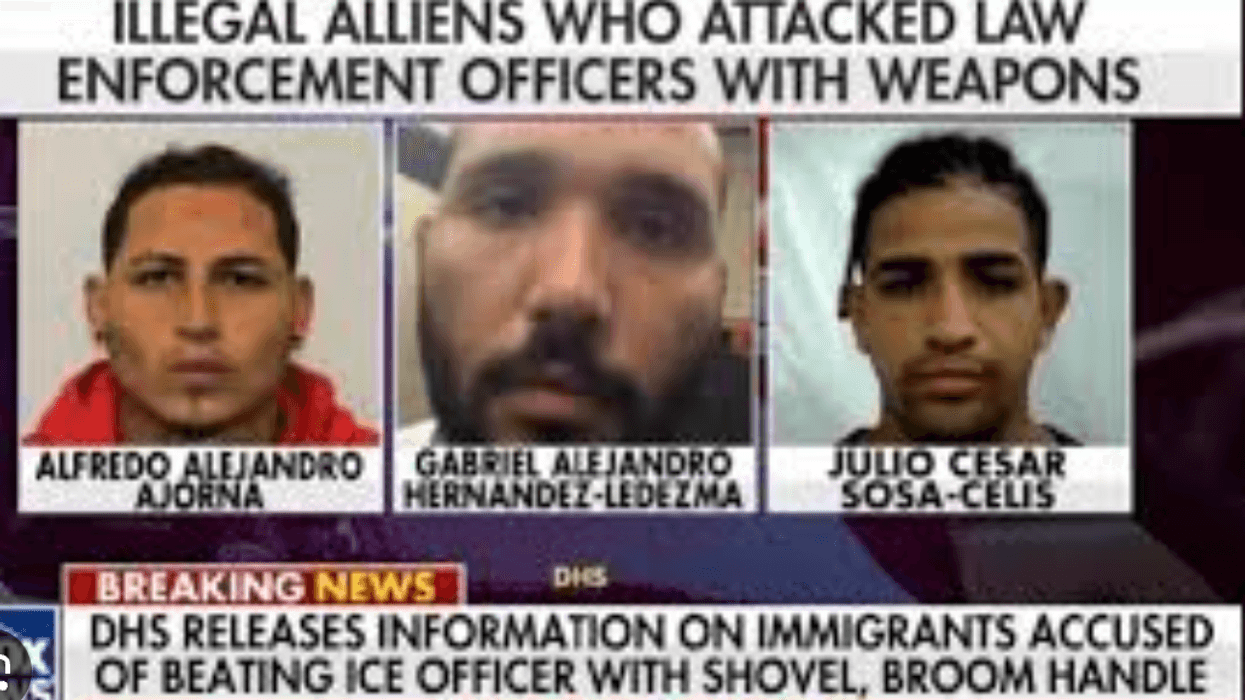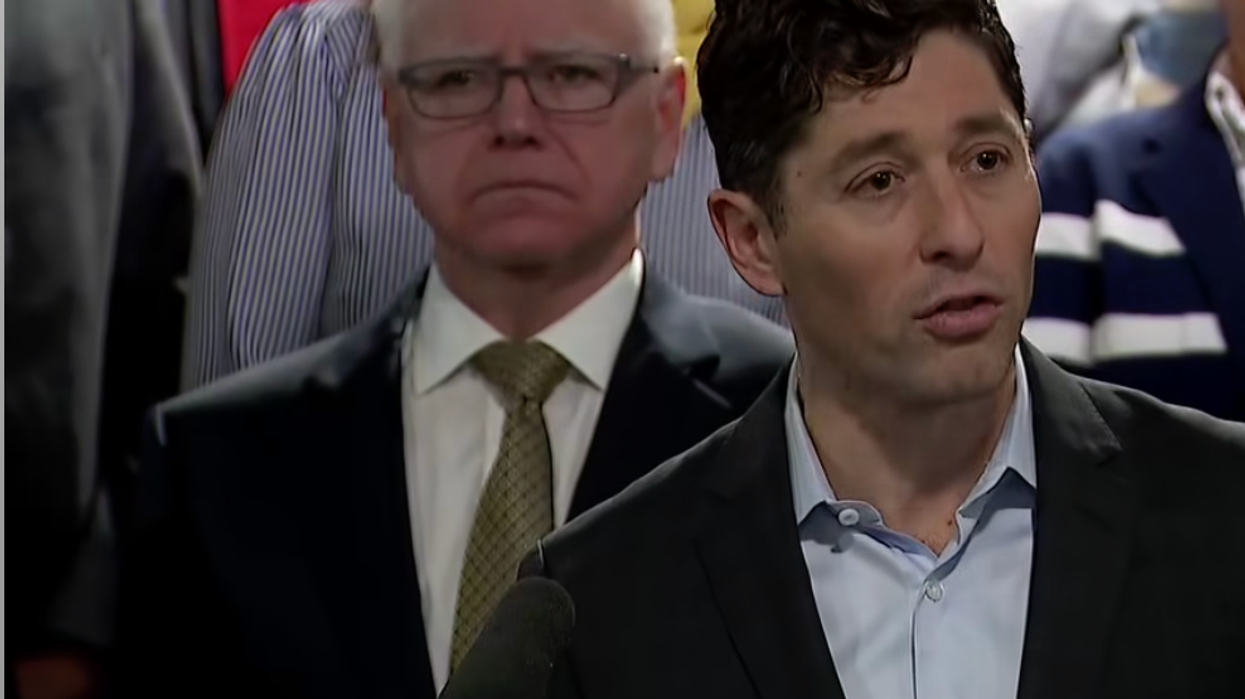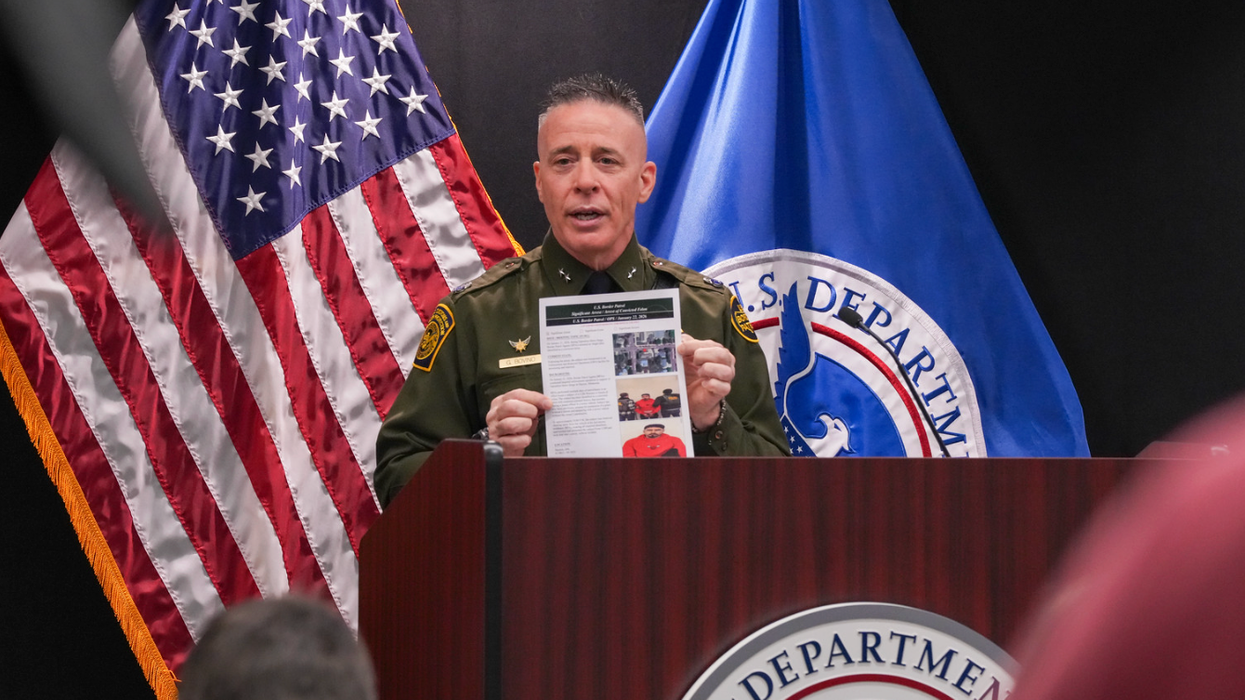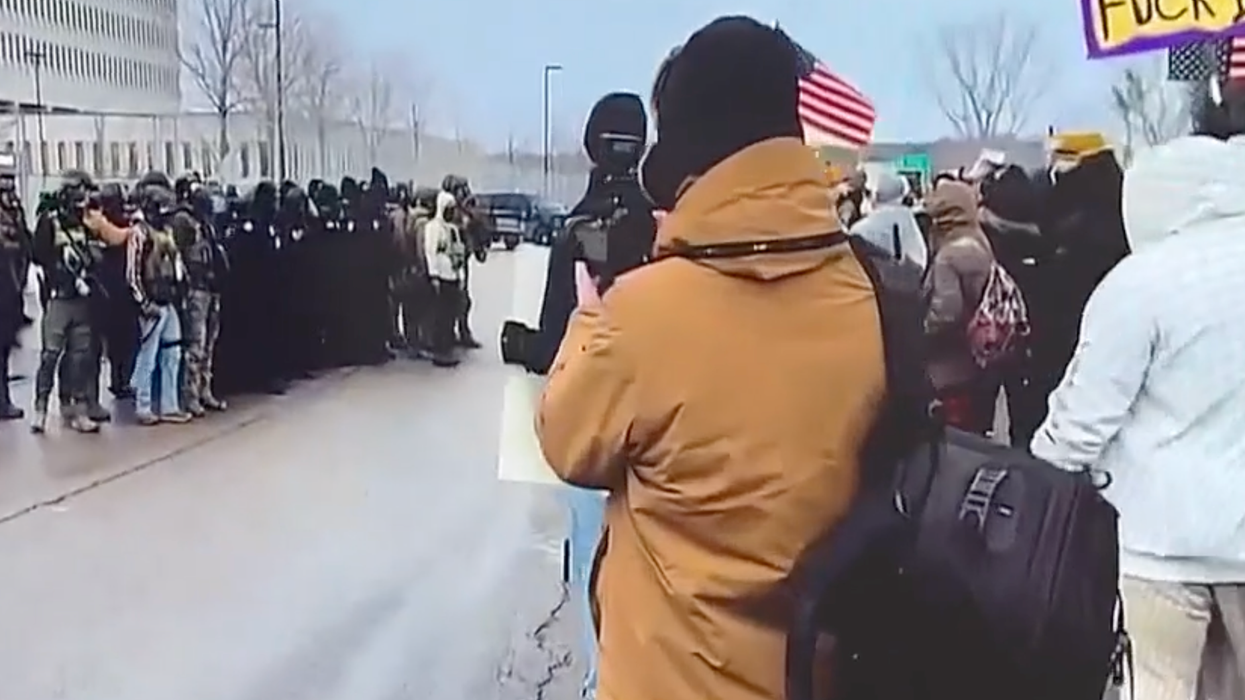Prosecutors Drop Charges Against Immigrants Accused Of Attack On ICE Officer
In mid-January, right-wing media figures seized on a story that could serve as a narrative reset after an
Immigration and Customs Enforcement agent shot and killed Renee Good in Minneapolis. Amid rising backlash to the Trump administration’s mass deportation operation across Minnesota, MAGA pundits hyped claims from the Department of Homeland Security that Venezuelan immigrants had attacked federal agents with a shovel and broomstick. Federal agents shot in response, the story went, wounding one of the men accused in the attack.
Since then, those claims have totally fallen apart, and on February 12 prosecutors asked the presiding judge to dismiss the case with prejudice. The prosecutor wrote that “newly discovered evidence in this matter is materially inconsistent with the allegations” put forward by the government in official filings and testimony.
Right-wing media coverage of the story was unhinged, and it followed a clear, established pattern of hyping dubious initial government claims that would later turn out to be false.
As news of the incident broke on January 14, Fox News correspondent Bill Melugin called in to Sean Hannity’s show to read a DHS statement he’d been given “literally 45 seconds ago” and to lay the foundation for the coverage to come, a role he often plays in the conservative media ecosystem.
“While the subject and law enforcement were in a struggle on the ground, two subjects came out of a nearby apartment and also attacked the law enforcement officer with a snow shovel and broom handle,” Melugin read. “As the officer was being ambushed and attacked by the two individuals, the original subject got loose and began striking the officer with a shovel or broomstick.”
“Fearing for his life and safety as he was being ambushed by three individuals, the officer fired defensive shots to defend his life,” Melugin continued.
The narrative was set, and the next morning Fox News’ Fox & Friends weighed in on the story.
“You come at these guys and these women with a shovel and if you are being apprehended and try to run away or drive over them, you will be featured in retaliation videos,” said host Brian Kilmeade. “That's what this is about."
Kilmeade’s co-host, Steve Doocy, also bought the government’s line. “You cannot hit a cop with a shovel or a broom. You just can't do that. It is against the law,” Doocy said. “It is terrible when anybody gets shot. But, unfortunately, a lot of people don't realize, if you break the law -- when you're breaking the law, there's going to be repercussions.”
Co-host Ainsley Earhart suggested capital punishment should be on the table. “When we were growing up, if you harmed a police officer, if you killed a police officer, in South Carolina you got the electric chair,” Earhart said. “When we were growing up, you didn't go after police with your car. You listened to what they said.”
Guest Trey Gowdy, who hosts another Fox show, said the supposed attack and the broader resistance to ICE’s presence gave President Donald Trump “all the justification” he needed to invoke the Insurrection Act in Minnesota, thereby deploying active military units against civilians.
The tenor of the coverage was similar elsewhere, and sometimes even more irresponsible.
On the podcast of former Trump adviser Steve Bannon, Kevin Posobiec — brother of MAGA influencer Jack Posobiec — said an immigrant was “shot in the leg because he was trying to kill an ICE agent with a shovel.”
At The Daily Wire, host Matt Walsh claimed that after a foot chase, “the illegal alien began attacking the officers and then two individuals, apparently family members of this person, came out of a nearby apartment and began ambushing the officers with a shovel and a broom handle.”
Walsh called it “another clear-cut, totally justified shooting by law enforcement.”
Walsh’s colleague, Michael Knowles, said, “The poor ICE agents now getting ambushed — they take out shovels, they start beating this guy with a shovel, and, so, luckily, happily, the ICE agent was able to get his gun out and shoot the Venezuelan.”
Although the exact details of what happened in the incident remain unclear, the prosecutor’s own words make it plain that the government's account was false. Less than two weeks after the shooting, two Border Patrol agents would shoot and kill Alex Pretti. Right-wing media tried to justify that shooting as well.
Reprinted with permission from Media Matters












